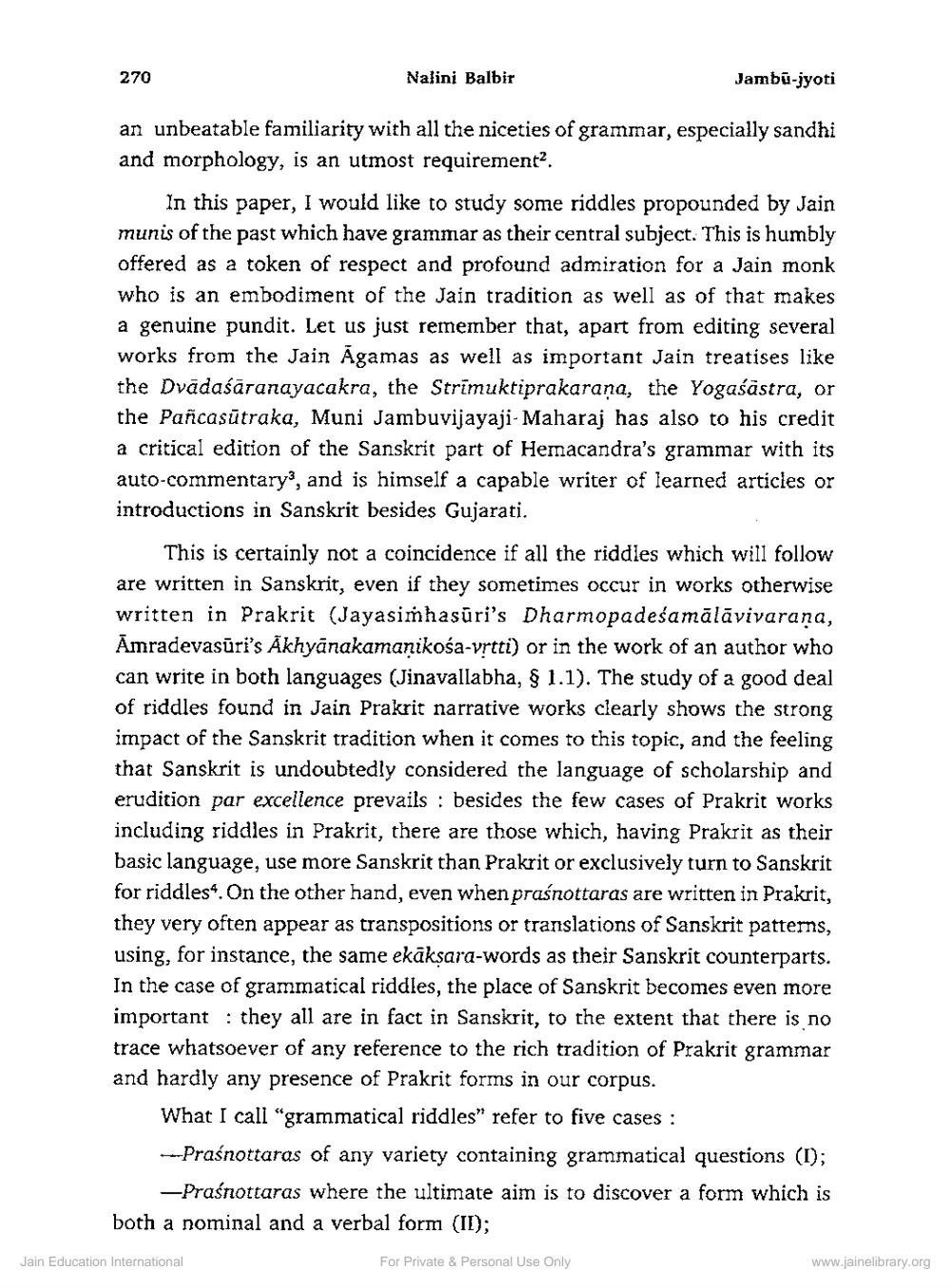Book Title: Grammatical Riddles from Jain Works Author(s): Nalini Balbir Publisher: Z_Nirgranth_Aetihasik_Lekh_Samucchay_Part_1_002105.pdf and Nirgranth_Aetihasik_Lekh_Samucchay_Part_2 View full book textPage 2
________________ 270 Nalini Balbir Jambu-jyoti an unbeatable familiarity with all the niceties of grammar, especially sandhi and morphology, is an utmost requirement2. In this paper, I would like to study some riddles propounded by Jain munis of the past which have grammar as their central subject. This is humbly offered as a token of respect and profound admiration for a Jain monk who is an embodiment of the Jain tradition as well as of that makes a genuine pundit. Let us just remember that, apart from editing several works from the Jain Agamas as well as important Jain treatises like the Dvādaśāranayacakra, the Strīmuktiprakaraṇa, the Yogaśāstra, or the Pañcasūtraka, Muni Jambuvijayaji Maharaj has also to his credit a critical edition of the Sanskrit part of Hemacandra's grammar with its auto-commentary3, and is himself a capable writer of learned articles or introductions in Sanskrit besides Gujarati. This is certainly not a coincidence if all the riddles which will follow are written in Sanskrit, even if they sometimes occur in works otherwise written in Prakrit (Jayasimhasūri's Dharmopadeśamālāvivaraṇa, Amradevasūri's Akhyānakamaṇikośa-vṛtti) or in the work of an author who can write in both languages (Jinavallabha, § 1.1). The study of a good deal of riddles found in Jain Prakrit narrative works clearly shows the strong impact of the Sanskrit tradition when it comes to this topic, and the feeling that Sanskrit is undoubtedly considered the language of scholarship and erudition par excellence prevails: besides the few cases of Prakrit works including riddles in Prakrit, there are those which, having Prakrit as their basic language, use more Sanskrit than Prakrit or exclusively turn to Sanskrit for riddles. On the other hand, even when praśnottaras are written in Prakrit, they very often appear as transpositions or translations of Sanskrit patterns, using, for instance, the same ekākṣara-words as their Sanskrit counterparts. In the case of grammatical riddles, the place of Sanskrit becomes even more important they all are in fact in Sanskrit, to the extent that there is no trace whatsoever of any reference to the rich tradition of Prakrit grammar and hardly any presence of Prakrit forms in our corpus. What I call "grammatical riddles" refer to five cases: Jain Education International ---Praśnottaras of any variety containing grammatical questions (I); -Praśnottaras where the ultimate aim is to discover a form which is both a nominal and a verbal form (II); For Private & Personal Use Only www.jainelibrary.orgPage Navigation
1 2 3 4 5 6 7 8 9 10 11 12 13 14 15 16 17 18 19 20 21 22 ... 41
